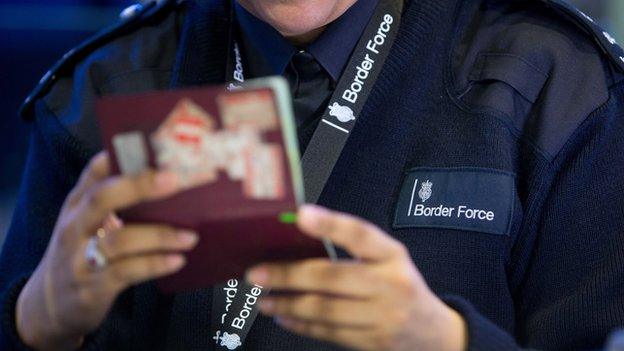No breakthrough for Cameron in Brussels
- Published
- comments
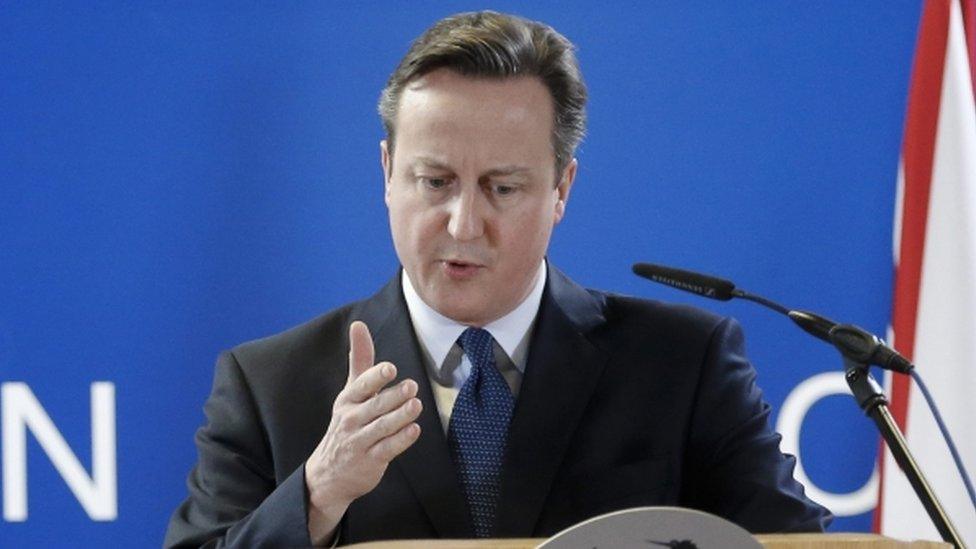
David Cameron spoke for 45 minutes
All the right soothing words were used during the Brussels evening. David Cameron spoke of "good progress" and "a pathway to a deal" - but for the moment there is deadlock.
The prime minister addressed the other leaders for 45 minutes.
UK officials wanted to point out that this had never been done before, as if the length of his appeal were somehow significant.
Yes, the mood of the meeting was generally positive but the outline of a deal is as elusive as it was.
There was much talk of compromise and indeed there is a rich vein of goodwill towards keeping the UK in the EU, but there was little or no flexibility over David Cameron's most contentious demand - withholding benefits to EU migrants for four years.
Essentially Europe's two most powerful leaders came with the same message.
The French President Francois Hollande said: "There can be adjustments... but European principles, European rules and European agreements must be respected."
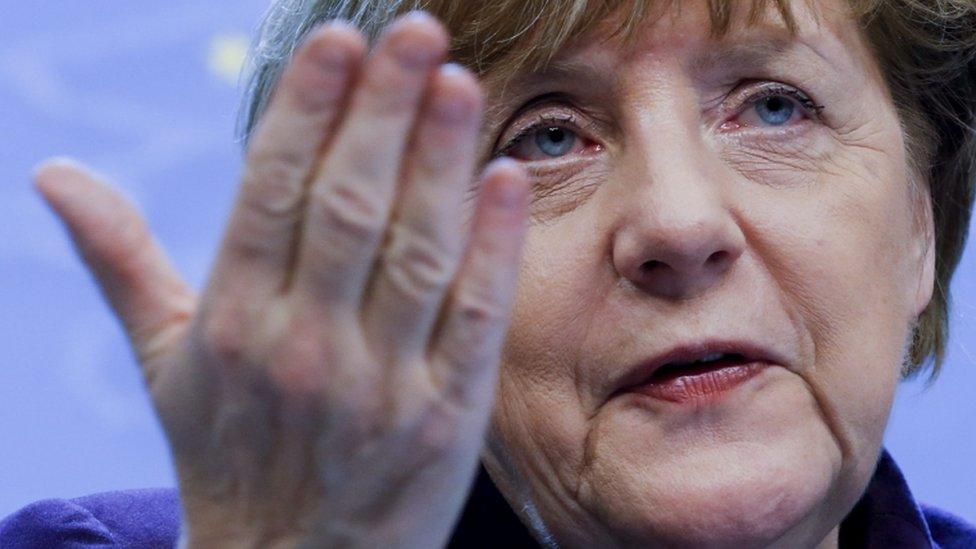
Angela Merkel is sticking to her guns
The German Chancellor Angela Merkel said: "We stated very clearly that we are ready to compromise but always on the basis that we safeguard core European principles which include non-discrimination and freedom of movement."
Compromise unlikely
The leaders are sympathetic to David Cameron when he tells them that the issue of migrants and benefits is "undermining support for the EU" in the UK. But they won't compromise on core EU principles.
Even before the meeting started, a group of Eastern European countries had made it clear they would not accept any proposal that appeared to discriminate against their citizens heading for the UK.
Intriguingly, David Cameron said during the meeting he didn't want to discriminate against anyone.
So where does this leave the British renegotiation?
For the moment David Cameron's original demand remains in play.
"No, I haven't put any other proposals on the table," he said afterwards. "I have put my four-year proposal on the table and it remains on the table."
The consensus was that this demand "would not get through".
One prime minister said that: "Cameron's starting point will certainly not be the destination."
So where is the hope of compromise? Some leaders believe that the answers lie in the UK changing its welfare system, changes that would apply equally to UK and EU citizens alike.
Cameron's dilemma
There has been consideration of applying a residency test for benefit applicants but again it could not discriminate.
Here is David Cameron's dilemma. The issue of welfare and migrants is the most important part of his attempted renegotiation.
Already those who want the UK to leave are arguing that the prime minister's demands are trivial.
The bottom line for David Cameron is whether what is finally agreed reduces the so-called "pull factor", external that draws EU migrants to the UK.
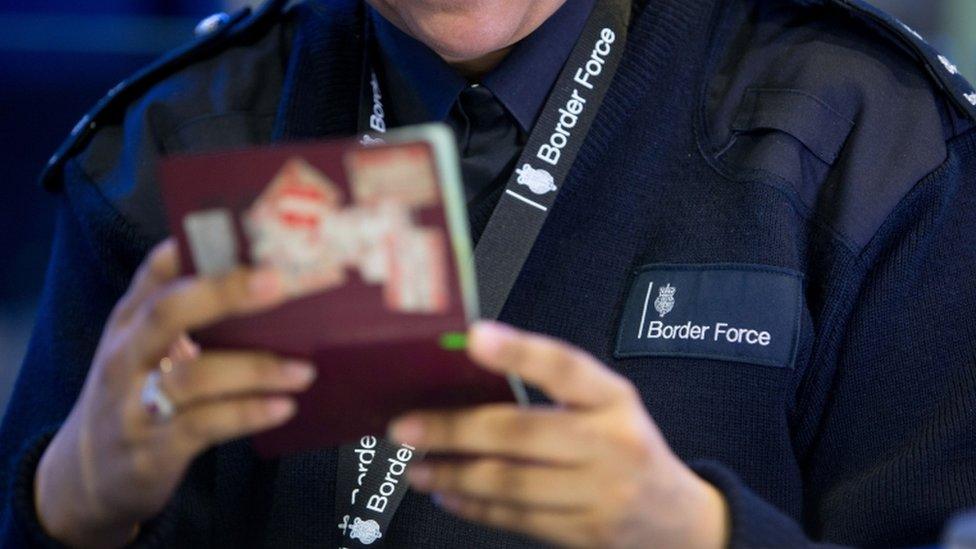
The UK wants to limit benefits to EU migrants
Earlier this week I listened to a group of Tory MPs who favour the UK staying in the EU saying the referendum is now about migration. It is the single issue that will determine whether Britain stays or goes.
So what is the prime minister's pathway of which he spoke? Over the next eight weeks and before the next summit his proposal will have to be adjusted. He cannot win with the hand he is playing.
If he can find a way of making the UK less attractive to EU migrants without compromising their freedom of movement then there may be some flexibility on changing the treaties to accommodate this - but not before the referendum.
Angela Merkel said: "If we need treaty changes, and I believe this could be necessary, then we all agree that they do not have to happen now."
In the short term - and that means before the German and French elections in 2017 - there is no chance of changing the treaties, so some cast-iron legal guarantees would have to be found.
Defending core principles
On this the French president will be less accommodating. He will not risk allowing the French public to vote on changes to the treaties.

Francois Hollande does not want to risk alienating the French voters
Europe has been battered this year by successive crises and its leaders are determined to defend what they see as the core principles of the union.
They do not want the UK to leave the EU, but neither do they want to see the pillars of the European union weakened.
The President of the Council Donald Tusk said he was "more optimistic after the meeting".
Angela Merkel's verdict was that "intensive discussions" would be needed but "with goodwill a way could be found".
A deal may still be possible but it will have to enable David Cameron to say that he has reduced the factors that draw EU migrants to the UK without discriminating against them.
It will be a hard deal in the making.

UK's EU referendum in-depth
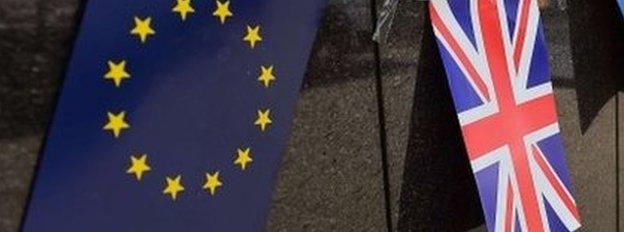

- Published18 December 2015
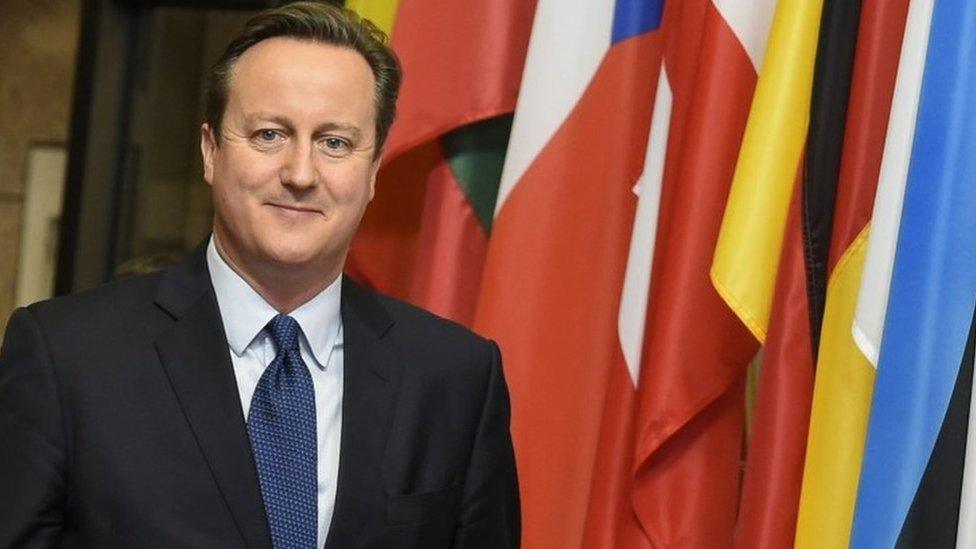
- Published17 December 2015
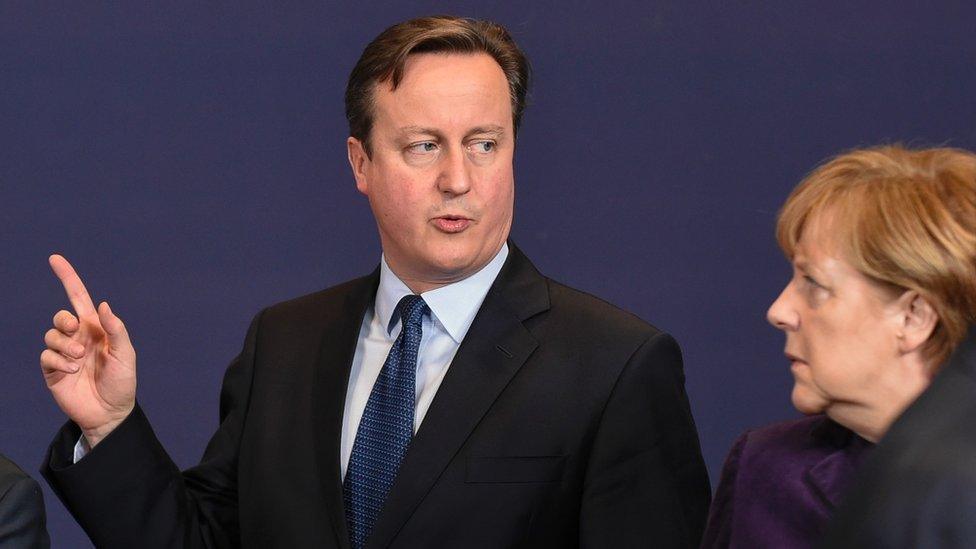
- Published17 December 2015

- Published18 December 2015

- Published27 August 2015
